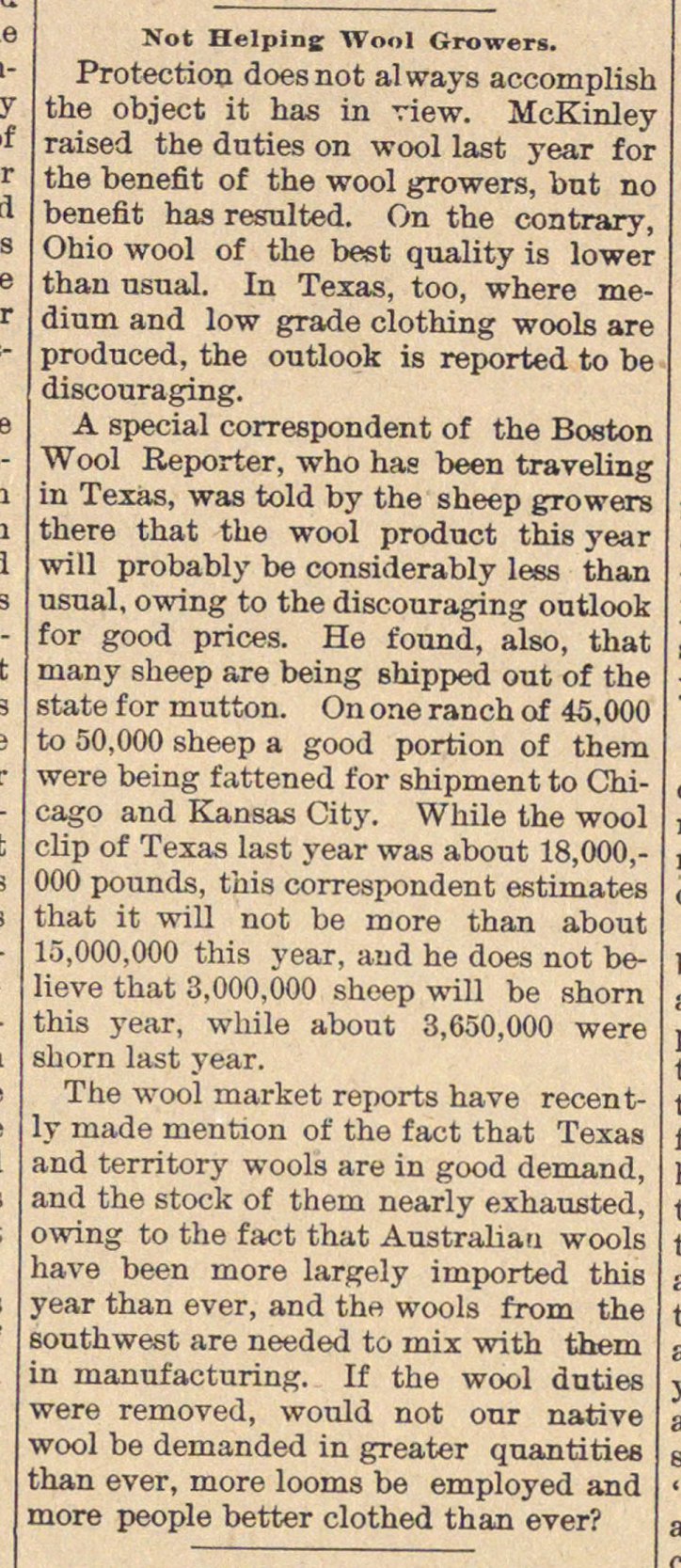Not Helping Wool Growers

Protection does not al ways accomplish the object it has in view. McKinley raised the duties on wool last year for the benefit of the wool growers, bnt no benefit has resulted. On the contrary, Ohio wool of the best quality is lower than nsual. In Texas, too, where medium and low grade clothing wools are produced, the ontlook is reported to be discouraging. A special correspondent of the Boston Wool Reporter, who has been traveling in Texas, was told by the sheep growers there that the wool product this year will probably be considerably lees than usual, owing to the discouraging outlook for good prices. He found, also, that many sheep are being sbipped out of the state for mutton. On one ranch of 45,000 to 50,000 sheep a good portion of them were being fattened for shipment to Chicago and Kansas City. While the wool clip of Texas last year was about 18,000,000 pounds, this correspondent estimates that it will not be more than about 15,000,000 this year, and he does not believe that 3,000,000 sheep will be shorn this year, wliile about 3,650,000 were shorn last year. The wool market reports have reeen tly made mention of the fact that Texas and territory wools are in good demand, and the stock of them nearly exhausted, owing to the fact that Australian wools have been more largely imported this year than ever, and the wools from the Southwest are needed to mix with them in manufacturing. If the wool duties were removed, would not our native wool be demanded in greater quantities than ever, more looms be employed and more people better clothed than ever?
Article
Subjects
Tariffs
Wool
Old News
Ann Arbor Argus